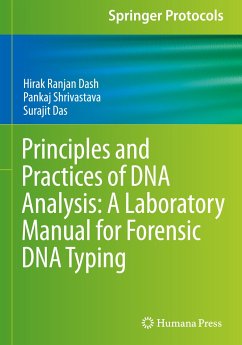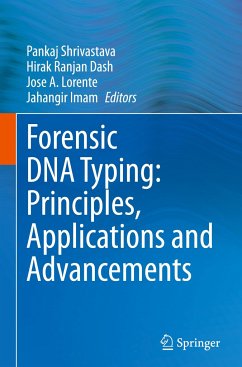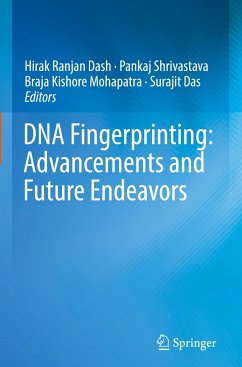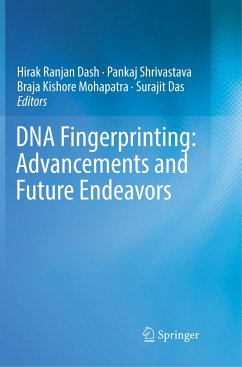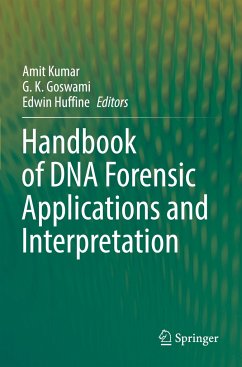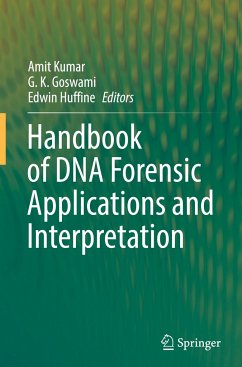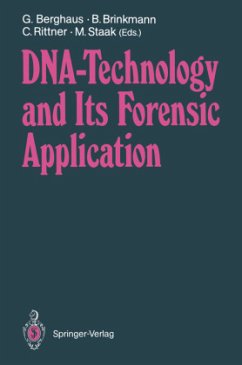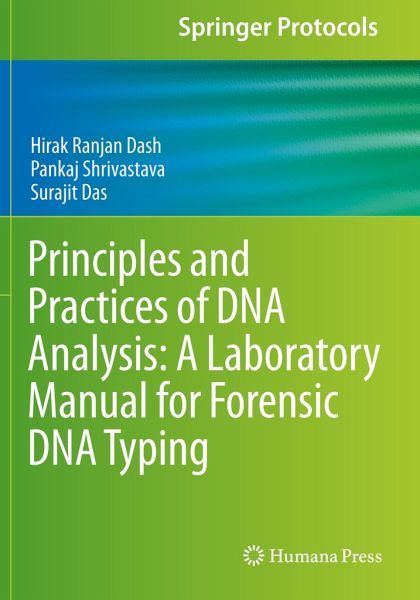
Principles and Practices of DNA Analysis: A Laboratory Manual for Forensic DNA Typing
Versandkostenfrei!
Versandfertig in 6-10 Tagen
117,99 €
inkl. MwSt.
Weitere Ausgaben:

PAYBACK Punkte
59 °P sammeln!
The book presents hands-on protocols for conventional and advanced forensic DNA fingerprinting experiments. It includes manual, semi-automatic, and advanced automatic techniques for DNA extraction from different biological samples.It also discusses various qualitative and quantitative approaches for the assessment of extracted forensic DNA. It contains protocols for the amplification of short tandem repeat markers (STRs) for the amplification-based target enrichment of the forensic samples.Further, it examines genotyping of the STR loci through capillary electrophoresis and includes real-world...
The book presents hands-on protocols for conventional and advanced forensic DNA fingerprinting experiments. It includes manual, semi-automatic, and advanced automatic techniques for DNA extraction from different biological samples.
It also discusses various qualitative and quantitative approaches for the assessment of extracted forensic DNA. It contains protocols for the amplification of short tandem repeat markers (STRs) for the amplification-based target enrichment of the forensic samples.
Further, it examines genotyping of the STR loci through capillary electrophoresis and includes real-world case studies where forensic DNA analysis has been used in the criminal and civil disputes. The book concludes by presenting technological developments in the field of DNA forensic analysis.
Suitable for beginners, it is a key reference resource on a wide variety of DNA profiling techniques and applications.
It also discusses various qualitative and quantitative approaches for the assessment of extracted forensic DNA. It contains protocols for the amplification of short tandem repeat markers (STRs) for the amplification-based target enrichment of the forensic samples.
Further, it examines genotyping of the STR loci through capillary electrophoresis and includes real-world case studies where forensic DNA analysis has been used in the criminal and civil disputes. The book concludes by presenting technological developments in the field of DNA forensic analysis.
Suitable for beginners, it is a key reference resource on a wide variety of DNA profiling techniques and applications.



